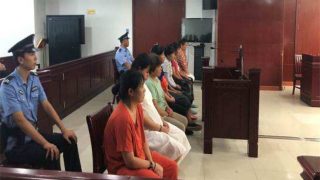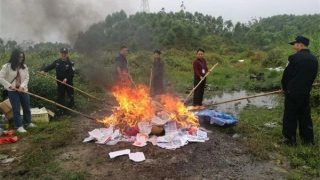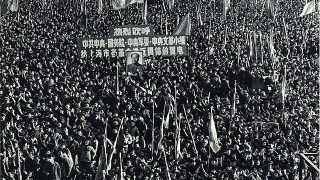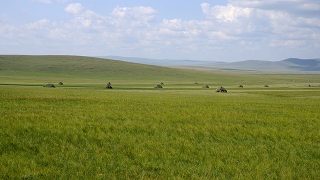
BELGRADE, SERBIA AND BIJELJINA, BOSNIA-HERZEGOVINA — Nataša Kandić, the formidable Serbian human rights campaigner and Nobel Peace prize nominee, shrugs. “Nobody likes the truth,” she says.
For almost three decades Kandić has been a thorn in the side of those who butchered, raped and tortured during the Balkans wars of the 1990s. She documented abuses and massacres. She protested what was unfolding, cajoling and informing a shocked world, insisting it pay attention to the return of genocide to Europe, and to do something about it.
The evidence she gathered was used in the preparation of many indictments issued by the U.N. International Criminal Tribunal for the former Yugoslavia in The Hague, including a video of Bosnian-Serb paramilitaries executing a number of captives, which helped prove Serbia’s role in the Srebrenica massacre of 7,500 Bosnian Muslim men and boys.
She has drawn the praise of human rights activists across the world, but in her home country she has seen by many as a traitor and drawn the hatred of the Serbs’ wartime leaders and their followers, including a new generation of ethnic nationalists who glorify ethnic cleansing and the Balkans conflict, which marked the first large-scale slaughter of civilians in Europe since the Nazi era.
During an interview in downtown Belgrade at the Humanitarian Law Center, an NGO she founded in 1992, she said, “The majority of public opinion is without respect for human rights. Truth is not so nice for people and politicians because Serbia bears responsibility for many war victims, wrongdoing, bad relations with neighbors, especially Kosovo. And we don’t have politicians who are willing to take responsibility for the wrong decisions of Serbia. All of them participated in making decisions in 1991 at the beginning of the war.”
Asked during the interview about continuing threats against her she answers indifferently: “It is the normal situation with killing and with war crimes.”
Despite the threats, she takes few safety precautions.
When she sat down with VOA, her only guard was an inquisitive tabby cat. Kandić is neatly dressed in white, frail physically but sturdy in argument, and she remains motivated and determined. Asked if it might not be time to retire, she responds: “I will not be quiet.”
Hours after she spoke with VOA, Serbian President Aleksandar Vučić lauded Serbia’s wartime leader Slobodan Milošević, describing him in a speech as “a great Serbian leader” whose “aims were certainly the best.” Vučić criticized former Serbian officials, who he dubbed pro-Western, for handing over Slobodan Milošević and his generals to the U.N. war crimes tribunal in The Hague.
His remarks prompted outrage in neighboring Balkan states where Milosevic’s ultranationalist policies during the breakup of Yugoslavia prompted bloodshed and destruction, and the deaths of at least 120,000 people in Bosnia, Croatia, and Kosovo.
For Kandić, Vučić’s remarks are not a surprise. Like many human rights activists and war victims in the Balkans she is frustrated with the halting progress made with transitional justice since the end of the Balkans conflict. She believes punishments and prosecutions, acknowledgement, and the apportioning of guilt are necessary to advance reconciliation.
She laments the ending of the mandate of the International Criminal Tribunal for the Former Yugoslavia, which wrapped up its work last year. She says the court changed the landscape of international humanitarian law and its legacy is important, but she worries “there is no other body to build on that legacy.”
Kandić says Western countries have neglected human rights in the Balkans and is urging them to back her calls for the establishment of a regional commission “to register all of the victims, to oblige states to name the victims and with a mandate to collect information to establish the identities of 130,000 victims; to establish the facts about how they lost their lives and organize public recognition.”
She asks, “How can you establish the rule of law without punishing the people who committed the crimes in the past?”
Kandić clearly is fearful of backsliding amid rising nationalist sentiment across the Balkans. “For example, in Kosovo, all the leaders were very active in the war, they were on the top level, they were war leaders. In Serbia, all current opposition leaders were very close to Milosevic.”
She is not alone nursing worries. In the Serbian-controlled Republika Srpska, one of the two legal entities of Bosnia and Herzegovina, Aleksandra Letić of the Helsinki Committee for Human Rights, bewails an increase in nationalist rhetoric, fanned by the politicians, especially before Bosnia-wide elections next month.
“Everybody, in particular the international community, is pretending that the pink elephant [a euphemism for hallucination] is not running through the streets of Bosnia Herzegovina,” she says.
A new generation of youngsters are thrilling to the idea of Serbian ultra-nationalism and there is little effort to pull them the other way, she says. “In Bosnia Herzegovina monuments are raised to the perpetrators, but the victims are neglected. We have only one official monument for the victims in Republika Srpska and that was built because of international pressure.”
“What is concerning is that those who are actually supporting war criminals, supporting the ideology of those who actually committed war crimes are young people born after the war,” says Letić. She adds the young generation should be the driving force for progress towards an open and democratic society, but is “deeply involved in nationalistic and chauvinistic behavior.”
The schools, she laments, do not teach what the war criminals did to get convicted. “Some of the history text books end before the peak of the Balkans conflict,” she complains.
Source:VOA



